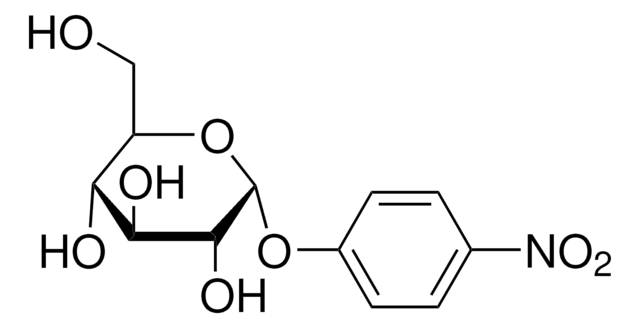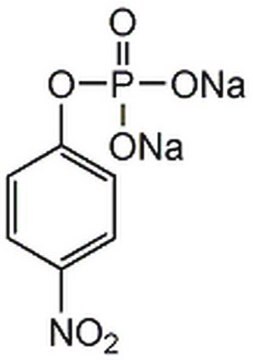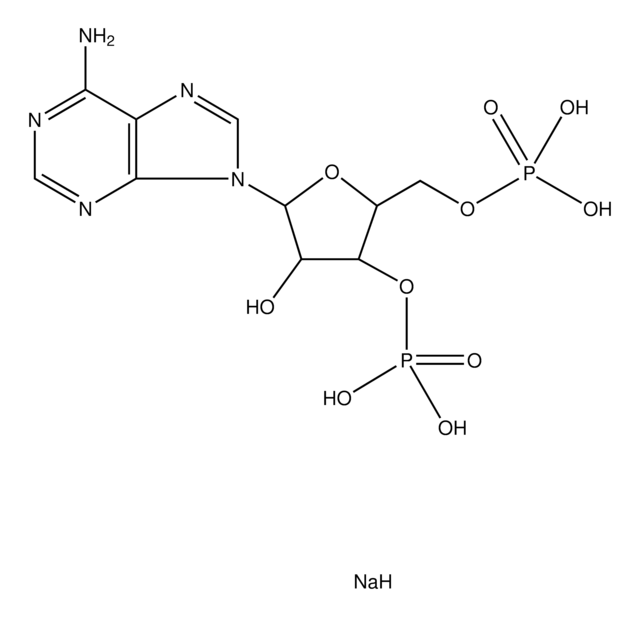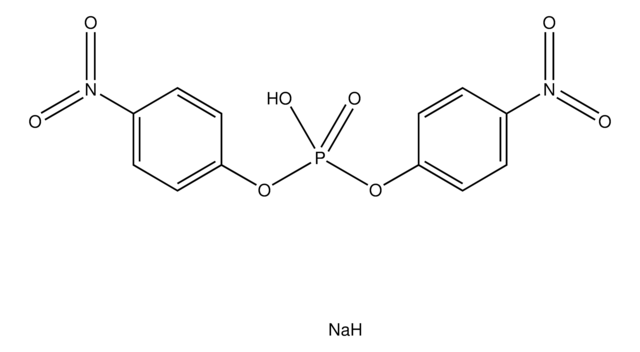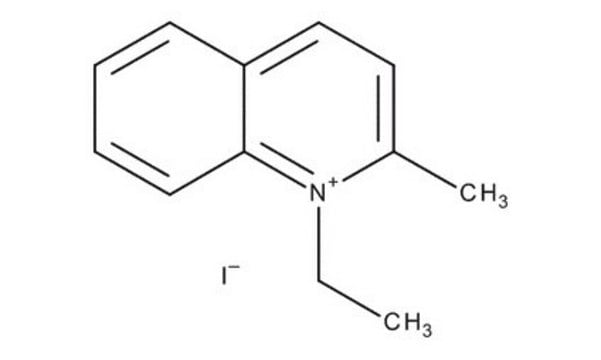N3877
Potassium 4-nitrophenyl sulfate
sulfatase substrate, chromogenic, ≥98% (TLC), powder
Synonym(s):
4-Nitrophenyl sulfate potassium salt
About This Item
Recommended Products
Product Name
Potassium 4-nitrophenyl sulfate, sulfatase substrate
assay
≥98% (TLC)
form
powder
mp
246-250 °C (lit.)
solubility
water: 50 mg/mL, clear, colorless to very faintly greenish-yellow (to Very Light Yellow)
shipped in
wet ice
storage temp.
−20°C
SMILES string
[K+].[O-][N+](=O)c1ccc(OS([O-])(=O)=O)cc1
InChI
1S/C6H5NO6S.K/c8-7(9)5-1-3-6(4-2-5)13-14(10,11)12;/h1-4H,(H,10,11,12);/q;+1/p-1
InChI key
BITVAZYUWRLLCN-UHFFFAOYSA-M
Looking for similar products? Visit Product Comparison Guide
Application
- as a substrate to measure arylsulfatase activity in cell-free coelomic fluid
- as a substrate for p-nitrophenyl glycoside-based enzyme assay
- to inhibit arylsulfatase
- as an inorganic analog of organic aryl ester sulphate
Substrates
Storage Class
11 - Combustible Solids
wgk_germany
WGK 3
flash_point_f
Not applicable
flash_point_c
Not applicable
ppe
Eyeshields, Gloves, type N95 (US)
Choose from one of the most recent versions:
Certificates of Analysis (COA)
Don't see the Right Version?
If you require a particular version, you can look up a specific certificate by the Lot or Batch number.
Already Own This Product?
Find documentation for the products that you have recently purchased in the Document Library.
Customers Also Viewed
Our team of scientists has experience in all areas of research including Life Science, Material Science, Chemical Synthesis, Chromatography, Analytical and many others.
Contact Technical Service



